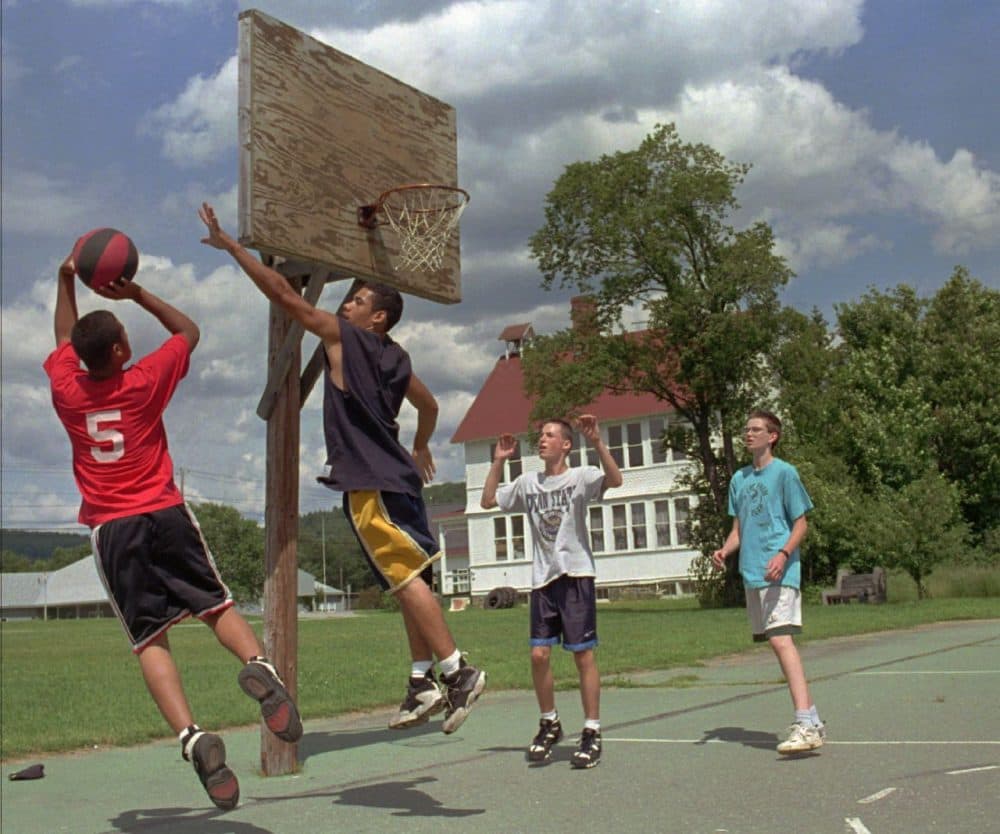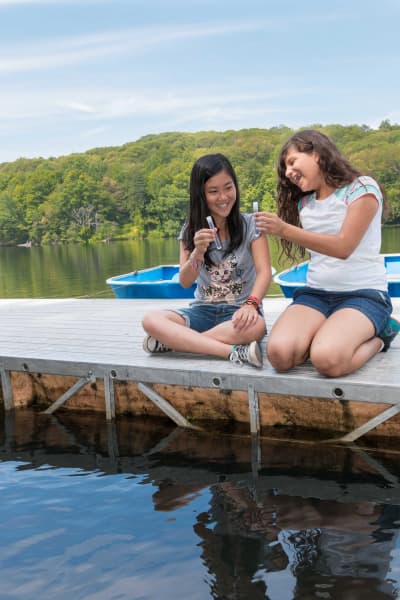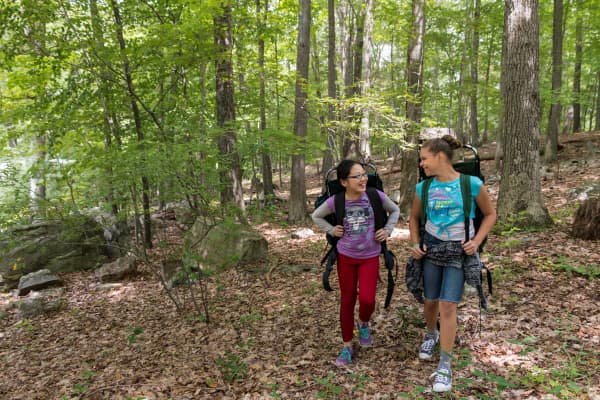Advertisement
The Fresh Air Fund Tackles 21st-Century Challenges

The Fresh Air Fund is a non-profit that began 140 years ago to provide New York City children with an outdoor summer experience. Here & Now's Robin Young speaks with executive director Fatima Shama about how the program has changed since then – and how it’s stayed the same.
Guest
- Fatima Shama, executive director of The Fresh Air Fund. She tweets @FatimaShamaNYC. The organization tweets @FreshAirFund.
Interview Highlights: Fatima Shama
On how children are selected for the camp:
"So in New York City there are nearly 2 million kids who would be eligible based on age range, and a third whom live in poverty. We estimate around 600,000 kids in New York City live in poverty. We at the Fresh Air Fund, aim to recruit those children. One of the things we try to do are find children who would be eligible for free lunch as evident to participate in the program. We get 11,000 applications annually for what you've just identified as 7,000 seats. Right now it's a first-come, first-serve basis. We are quite cognizant of the need. One of the things we aim to do are find more families who would be willing to host more children, because that is something we can continue to grow. And that is astounding to me because our history is actually started 140 years ago. And the Reverend Parsons started this, I have to say, my background is in public health and education policy, and I have to say this was a public health solution. Children in New York City's tenements were living with tuberculosis, and it was spreading because of the fact that kids had no access to cleaning their lungs.
Advertisement
We have asthma. We have communities riddled with crime and gun violence. We have obesity and lack of open space for kids to actually just play and be kids. Still, the Fresh Air Fund is just as relevant as it was 140 years ago, and we need families who would continue to welcome kids from our low income communities into their neighborhoods."
On challenges finding host families:
"Once upon a time, families had summers that were more relaxed. More moms who were home. Now we have many homes, two parents are working. Two week summer vacations are their reality and their ability not only to have their own downtime as a family but also invite someone to be a part of that might be more complicated. We do go through a pretty rigorous background check process and interview process, to make sure one of the homes that's volunteered to do this is a home that you and I would send our children to. And so it's an interview, it's a home visit, it's a background check process, it's reviewing and speaking with four references. So it's fairly rigorous, and some folks may not be up for that deep of a challenge, but for those that go through, and we have 4,000 of those who do. We're really delighted that they've done that work, and we certainly know that as our applications continue to come into our office we can more easily send children to homes that would willing to go through that process."
On how the Fresh Air Fund stacks up against other camps:
"I don't think we compete with it. Largely because I think we're giving opportunity for children who would likely never have the opportunity. And I think that's both what we pride ourselves on, and what makes us uniquely special, and special for the families we're both trying to recruit and serve. So what absolutely happens at camp is fun. But it is fun I will define as layered with

enrichment. And so for many of our children, they've never seen lakes before. And the idea of swimming in one is a whole new experience. Swimming, as I've learned from many of our children and our families is something that is quite unique for our kids. Most of them don't know how to swim. In their two weeks with us they go through this rigorous process.
But the idea that while they're learning how to swim, they're in this water they're learning that beneath their feet there's a living ecosystem. We talk about the pH's of water and the differences between pools and lake and what could be more natural. And amid that they're actually learning or hearing sounds of birds around them. So someone is teaching them what those sounds could be. Embedded in all of this learning that is true fun are all these new vocabulary words, all these scientific terms that become real, because back in the classroom they're going to be introduced in some way shape or form in the life sciences. What actually is quite real, to put on an ed policy hat, is that this is what differentiates middle income from low income children.
Kids have these experiences that as you know parents pay for. In low income families, kids don't necessarily have these and therefore may differentiate them from being able to have the vocabulary or experiences they can then write about. It's these experiences that are truly still fun and are allowing enrichment to happen in a different way."

This segment aired on June 8, 2016.